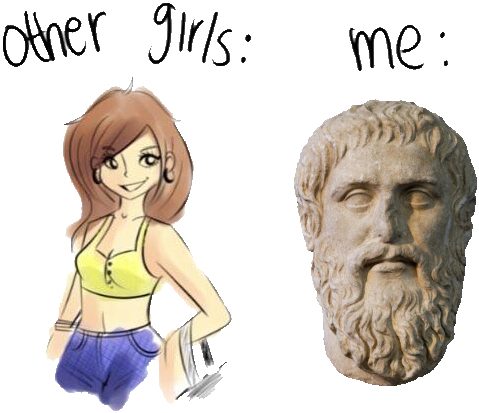I Discover The Cultural Tutor
I picked a very fortuitous time to begin reading The Cultural Tutor’s daily Twitter threads. His posts had been recommended to me by the Twitter algorithm here and there, and I ended up following him, but it took a little while for me to warm up enough to set up alerts and become a daily reader. At that point, I was reading each day’s thread and looking forward to the next. About a week later, driven by curiosity, I decide to throw the hugely popular Twitter author’s account name into YouTube’s search box. By complete happenstance, my search came just a few hours after The Cultural Tutor had been interviewed on David Perell’s YouTube channel – apparently this was also the first time he’s ever revealed his identity! He’s been anonymously writing daily Twitter threads for something like a year and a half and had amassed a million and a half Twitter followers in that time, but the week I start following his every post and looking forward to his writing is the same week he lifts his veil of anonymity and does an interview. Since then, I’ve kept up on his Areopagus posts, and have begun digging around some of his older Twitter threads1.

The Elephant Statue in the Room
I want to talk a little bit about his interview with David Perell (and get to the point of why this timing was as fortuitous as I’m making it out to be!), but first I need to address a potential elephant in the room: The Cultural Tutor is a “statue PFP” (or what I will refer to as a “statue account” from here on out). For those not as terminally online as myself, I’ll allow KnowYourMeme, the most reputable of all sources online2, explain:
Statue Profile Pictures or Statue PFPs refer to Twitter accounts that use photographs of Greek and Roman statues as their profile pictures. As the practice is popular with accounts that post about Western traditionalism and are critical of modern society, jokes and memes about “statue PFPs” and “statue avis” have become popularized online, not unlike memes about anime profile pictures.

This is a fair summation of statue accounts, but let me be more specific about what I’m talking about: I open up a different statue account on Twitter, @Culture_Crit, and I’m met with suggestions to follow @ClownWorld_, @EndWokeness, and @jordanbpeterson. What I’m getting at here is that “statue accounts” are usually very strongly associated with a call for an outright return to Western traditionalism – “the good ol’ days!” I do think that there is a place for that sort of discussion, but, as is usually the case with Twitter posts, the nuance tends to either get lost or was never present in the first place.
To pick on @Culture_Crit some more, a post that comes to mind as an example of my personal gripes with statue accounts is “Dear men, what is preventing you from doing this?” and the accompanying video of men working on an oil rig. The intuitive and obvious answer is that there are plenty of men in the audience of this post who simply don’t need to do back-breaking labor to get by (@Culture_Crit included!), and would prefer to maintain their health for the years to come. Simple enough, so why make the post? The underlying message is something like, “today’s men are sissies, but look at these badasses; men should be more like these badasses.” Here’s a well-written response that does a good job of picking this point of view apart:
Your account might be easier to take seriously if you yourself came anywhere close to what it is you portray as the manly ideal. Sometimes the things you post make my military veteran eye twitch, because they’re faux-based in the manner of someone who stares down his nose at others for not being what you yourself aren’t, either. So, I am going to ask directly: have you ever worked the Dakota oil fields? I know I haven’t, and I’ve done some hard shit most people in America will never do. This job these boys are doing looks a lot harder. Kudos to them. I hope they are making bank. This is work for young, strong guys.
The Cultural Tutor is different, though

With that general (and negative) background of statue accounts out of the way, I want to take a moment to focus on what makes The Cultural Tutor’s perspective refreshing and objectively better – in other words, The Cultural Tutor is “not like other statue accounts”3. I think a great example is a recent Cultural Tutor thread asking the question, “Would the world look better if it wasn’t filled with ads?” Of course it would, but is this going to be another “good ol’ days” statue account post?
Thankfully not! Now, I would encourage you to give the complete thread a read, but I primarily want to focus on the conclusion:
But people in 1907 had plenty to complain about, much of it far worse than ubiquitous advertising. Average life expectancy was 47 and millions of people were living in conditions of abject squalor and material misery. […] So the ads with which we are now surrounded, and from which we cannot escape, are perhaps a necessary condition of the economic system in which we live — one which has, on the whole, made the world a more prosperous place. And so our problems are always a matter of perspective.
If you care to poke through some statue accounts yourself, you’ll see a very similar premise to many posts – “would things be better if we had (old thing) instead of (new thing)?” – but the writer then frequently refuses to provide a conclusion, or the conclusion is an implied or explicit “of course (old thing) is better! Let’s return to the way things used to be!” with no additional context or critical thought. In the case of the aforementioned oil field post, risks of working in an oil field are entirely absent and the reader is left with a vague implication that men today should be more like the men we see in the video. I would hear this writer out if he took the time to make the argument that more men should work on the oil fields instead of any other less-risky profession, but I simply can’t steel man an argument so ridiculous – and as far as I can tell, the author can’t either.
The Cultural Tutor’s Writing Advice
With that out of the way, why was my timing of beginning to read The Cultural Tutor so fortuitous? Simply put, I was very likely to miss his interview on David Perell’s YouTube channel unless I had explicitly searched for “The Cultural Tutor” on YouTube – which I either would’ve done a single time, likely missing the upload entirely, or never at all had I not already been a regular reader of his. At a time when I’m trying to put more effort into my writing, this interview is released just before I stumble across it, and it’s packed full of good, relevant, and inspiring writing advice; I’d recommend anyone trying to write more themselves to give it a watch or listen.
In a pinned comment on the YouTube video, the interviewer derived these “writing maxims” from his back and forth with the eccentric, chain-smoking author:
- Don’t read anything published within the past 50 years.
- You don’t lack ideas, you lack deadlines.
- By forcing yourself to be creative, you generate better ideas.
- Be disciplined about your output but loose with your process.
- You don’t need to be an expert before you start writing; you just need to be curious. You’ll become an expert by writing about what you learn.
- The best time to write about an idea is when it first strikes you.
- Your voice is what you write about, not just how you write about it.
- You can’t just sit in an empty room and write. You have to engage with the world and notice things. Then write about that.
- Your best writing comes not when you decide to write but when you are compelled to write.
- You have enough time to write. If you’re not writing, then it’s not your priority.
- Keep a notebook because great ideas disappear as quickly as they appear.
- If you can get the introduction right, the rest of what you’re working on will write itself.
- Sometimes there are truths that emerge in our writing that feel like they come from outside of us, and we feel like conduits and vessels for the ideas. An idea can take you over, where you’re just in service of it.
Some personal interpretations I take from a few of these are, taking #1 for example: consume material from lesser-known sources, leaning towards authenticity. For instance, if I want to create a post or video about a Super Nintendo game, first and foremost I’d want to do whatever I could to play the game on original hardware with a relatively period-accurate setup (essentially just using an original console, controller, and a CRT TV). I also think that utilizing archive.org and thumbing through gaming magazines from that era, or trying to seek out discussions about the game on now-defunct forums, would make the writing more interesting and unique than something like typing “Chrono Trigger” into YouTube or browsing modern, frequented places like a Reddit or GameFAQs community.

What’s the rationale? Well, something like original hardware is obviously “SNES®: The way it’s meant to be played™” 4 in this example, free from any differences present in something like a 3DS remake, as well as any problems introduced even in “official” releases that seem to just be a ROM stuck in an inaccurate or subpar emulator running on modern hardware. As for a CRT TV in this case, not only does the picture look worse when hooking a SNES up to a modern flat screen, but the default settings on most of these TVs introduces a very noticeable amount of input lag.
In the interview, The Cultural Tutor also makes the argument that your thoughts and your writing are influenced by what you’re consuming. Extrapolating this out to include modern YouTubers or Reddit users: these gamers too have had their own takes and opinions informed by the decades of discourse that have taken place about this game, and will be shaping your own views of the game as a result. Despite this, I don’t believe it’s impossible for an authentic and original voice to still shine through, but it certainly seems like it would be easier to craft a more unique piece without being weighed down by this sort of thing.
Many of these maxims speak for themselves but #5, #12, and #13 are catching my eye right now. A slight rewording and reinterpretation of these might be: go ahead and start writing about a topic that you’re interested in but know nothing about; you’ll learn as you go! And, if your premise is sound, then simply “going with the flow” will lead you to a worthy and complete work.
What happens from here?
I really like The Cultural Tutor’s idea for his Areopagus. Essentially, he has a general format that he follows, writing about a piece of classical music in one section, followed by a discussion about a historical figure and his feelings about a particular painting after that. I had actually intended to do something similar with this post, though with different topics, but I ended up writing enough about a single subject to go ahead and post it on its own!
I’m going to begin to post weekly in the same general style of the Areopagus. I will certainly have a section for music, and likely a section for YouTube, but from there I think I’ll need to be quite fluid in the structure for the foreseeable future. For example, I was recently browsing Twitter and clicking through a few artist accounts that I enjoy and started to save some that really stood out to me, with the purpose of sharing as a part of my weekly post. Outside of music, however, I’m not sure if I would yet classify myself as a consistent and authentic “art enjoyer” – but maybe that will change and there will be a recurring “art enjoyer” segment of my own little version of the Areopagus! Perhaps a name like, Corbin’s Curiosity Cabinet, or The Corbin Codex, or something of the sort? Hhhmmm…

And hey, sometimes the Areopagus breaks its own standard structure in order to share a more cohesive essay honing in on one specific topic, so I feel comfortable giving myself a pass for doing that here… even though this is the first “issue”! Hey, I’m still feeling things out; maybe every week will be a single topic…? Who knows! :)
PS: A piece of advice from The Cultural Tutor that stings, but only because it is much-needed for me, is that readers tend to prefer and engage with material that is falsifiable. I always feel uncomfortable and stray from putting my foot down and asserting a clear, definitive thesis in my writing. Alas, though I am still hesitant and don’t feel entirely ready to integrate this advice at this time, I suppose there’s no better way than to dive in head-first! After all, if I’m not willing to put forward and defend my own point of view, how could I expect the reader to engage with what I have to say at all?
Thanks for stopping by and giving this a read,
c.zip
-
As far as I can tell, this page hasn’t been kept up to date, but the thought of updating or essentially remaking this has crossed my mind… ↩︎
-
I’m making a joke, but I would consider KnowYourMeme’s bias to be towards the general sentiment. In other words, for this specific article, I think that KnowYourMeme accurately portrays other Twitter users’ views on statue accounts. ↩︎
-
I have no idea why I can’t find an entry for “not like other girls” on KnowYourMeme, just a lot of memes and pictures without an accompanying article. ↩︎
-
The NVIDIA logo and the “The way it’s meant to be played” logo are registered trademarks or trademarks of NVIDIA Corporation. ↩︎